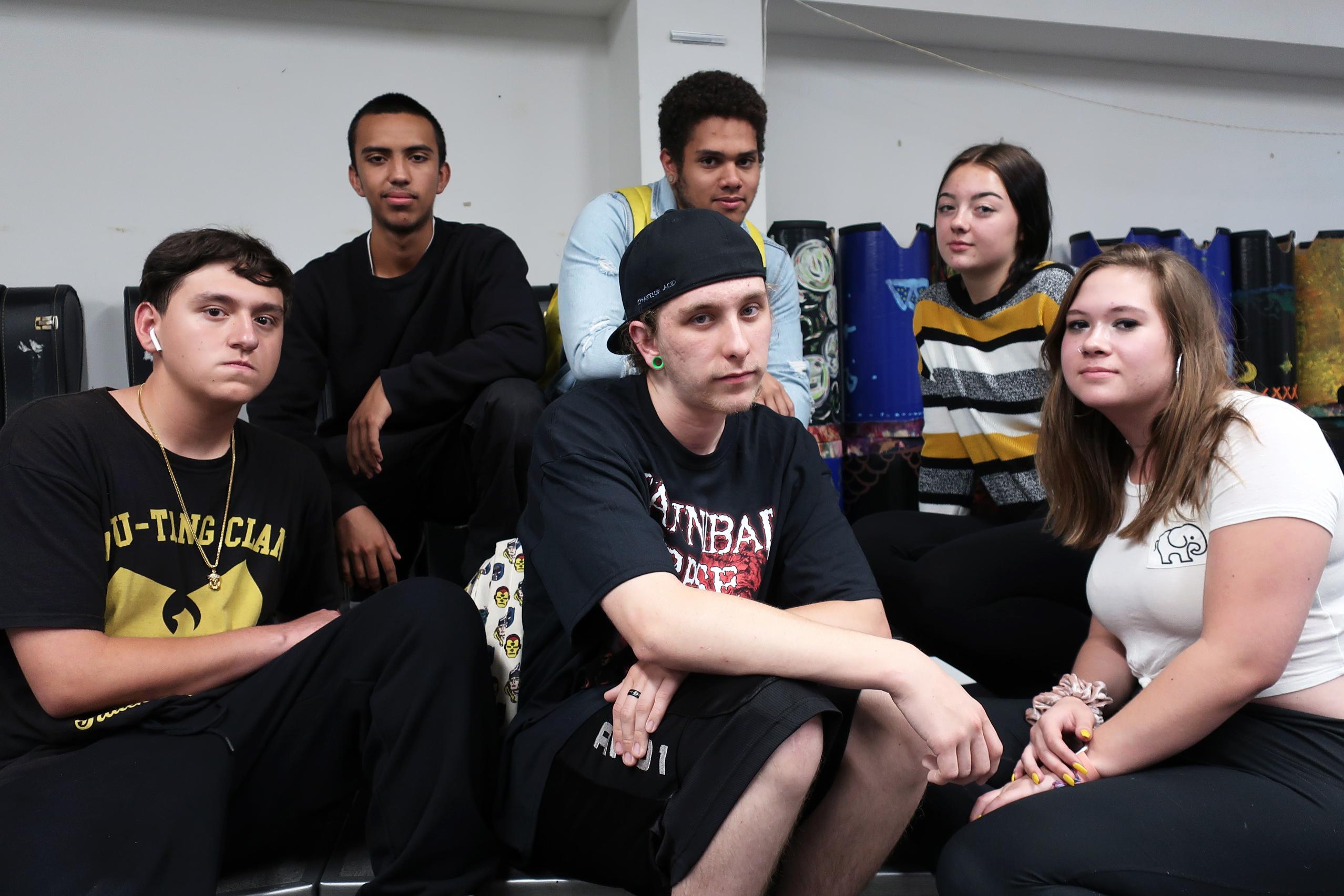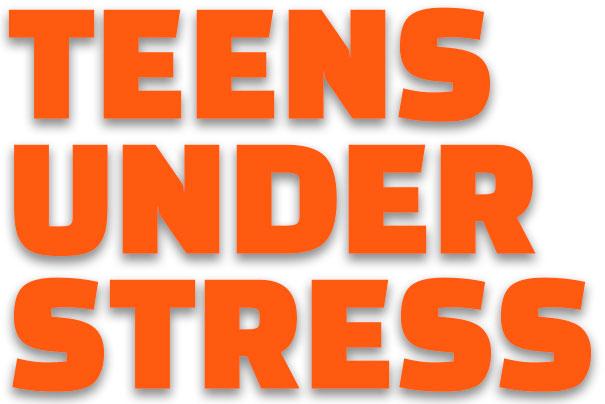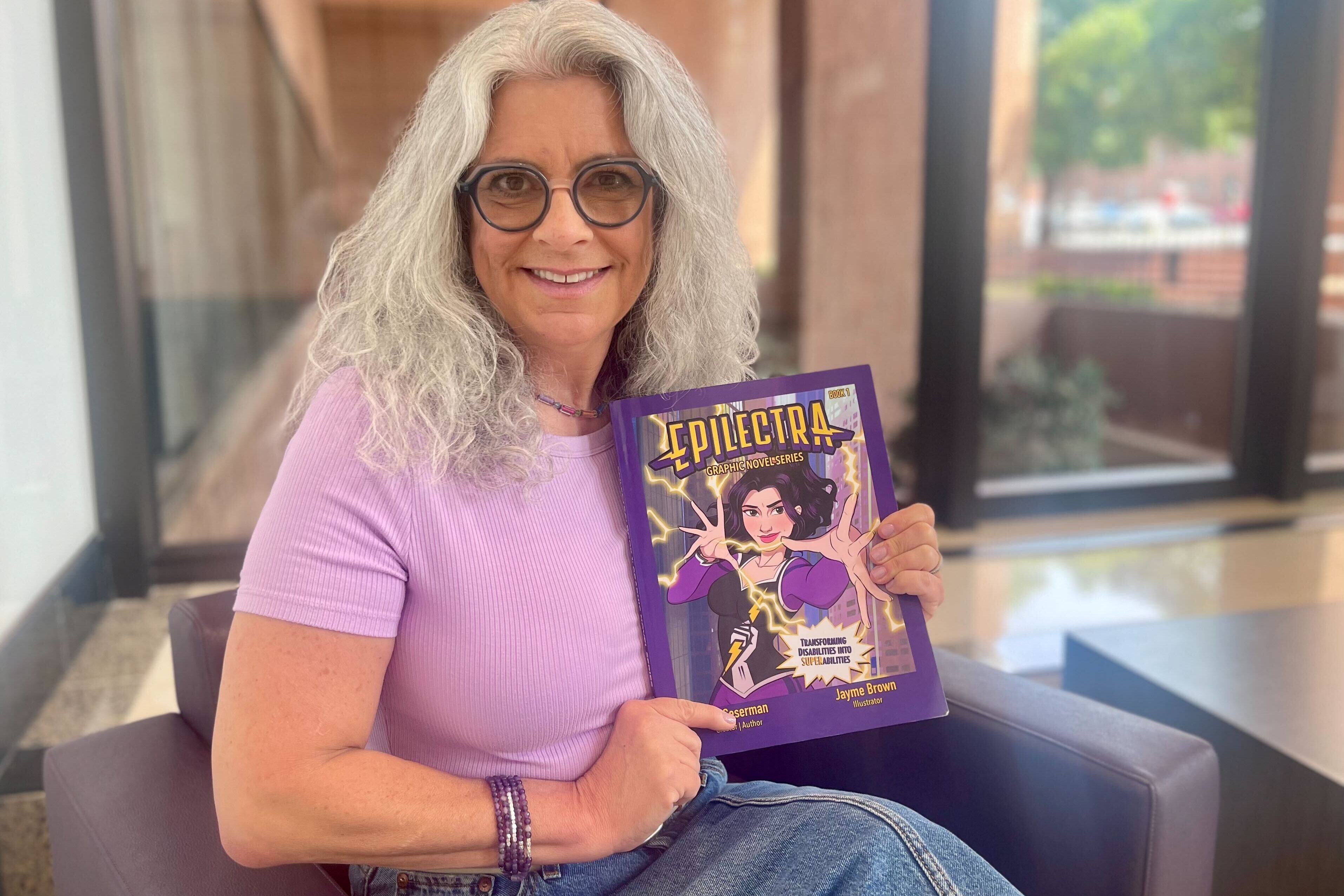
In reporting on teens under stress, CPR News has heard from students, educators and parents that academic stress is a greater challenge now than in years past.
To get at some of the ways that the modern system contributes to that, we talked to students at Brady High, an alternative high school in Jefferson County, to ask why they opted out of their more “normal” schools.
Dominic, Paris, Jakob, Shawn, Brandon and Ellie — all except Paris, a junior, are in their senior year — explained why they’re doing so much better academically and mentally in an alternative high school.
Several things stood out in our conversation about their experiences in their old high schools, which for some, led to increased anxiety and depression.
Class sizes and the way teachers operated made it hard to feel connected.
There are the teachers kids like.
Everybody knows who they are — the ones who relate to kids on a human level. Then there are the other teachers. Dominic says most teachers at normal high school were a “lot like parents,” kind of robotic.
“Do this, and don’t do this, and simple bland orders, compared to like here, I can ask Ms. Madden, ‘what’d you do this weekend, oh she went riding on her bike I went skateboarding at this one school,” Dominic said. “There’s a reciprocity, there’s a genuine humanness.”
There are, of course, many school teachers who care, but the point these students want to make is, the system in which teachers operate leaves most of the time spent focusing on getting through the curriculum for later testing and little time for developing human relationships. For some students, it has an isolating effect.
This deep desire to have an authentic relationship with an adult is something many teens say is lacking in their lives, contributing to anxiety and depression.
In focus groups across the state for the Colorado Attorney General’s youth suicide report, one of the top findings was “a strong desire to have authentic relationships with adults with whom they connect and feel comfortable.”
“It seemed like a lot of the teachers just didn't care,” Jakob said. “So that led to me just not caring... like you'd ask them for help and they would just either walk the other way, not look at you in general or just act like they didn't hear you for the entire class period. And then you just sit there confused. And that's just really frustrating.”
The class sizes in Paris' old Jefferson County school were huge, and sometimes kids just talked and didn’t pay attention.
“The teacher's just like, ‘Just get this done.’ And then when some of us asked for help, he just has so many other kids to get to, he can't get to all of us. I started falling behind ‘cause I couldn't get the help that I needed because there's so many kids in there with us," Paris said.
The students say at their old high schools, they say the intense stress on test scores, college and graduation rates — made them wonder why they were there. And that made them feel inadequate. Shawn sat at the back of the class, lost. His stress was compounded by social anxiety.
The stronger the cliques were in each school culture, the more uncomfortable and anxiety-producing school was.
Some kids talked about the age old jocks making fun of nerds. Others felt that at their schools, kids were comfortable expressing themselves and the social culture wasn’t too bad.
Ellie experienced the former. She said the clique-y social scene fueled her anxiety and depression. Kids couldn’t date outside their friend group or hang out with other kids not in your friend group, Ellie said. She always felt like she “needed to do better.”
“I needed to fit in with all the other girls who were in my class because I was short and all the other girls were tall and really pretty and really curvy and just, like, in my head, really perfect," she said. "So I was getting all up in my head about how I was doing in school, my grades, the fact that I was struggling to handle my depression, making friends, fitting in, finding guys who would like me, and just all of it.”
Many teens we interviewed for our series on teen stress report intense social conformity in the culture. While the sense of being judged has always been part of adolescence, a near-constant stream of images about what you’re supposed to look like gives teens no respite. Judging isn’t just in school hallways, it’s equally harsh online.
Parents’ ideas of what their teens should do once they graduate made anxiety and depression worse for some of the students.
Meanwhile at home, some kids like Brandon hid their struggles from parents. They didn’t want them to worry.
“And I didn’t really want to talk to my friends cause a lot of my friends ... they're obviously doing good in school," Brandon said.
Shawn’s parents said failing was up to him to figure out. He knew that, “if you mess up that's on you ‘cause you gotta learn somehow,” but he almost wanted them to punish him.
“In the back of my head I'm like, okay, on one hand, you may not care, but I kind of want you to, ‘cause I need some motivation to get my grades up. ‘Cause I'm sitting here feeling completely stupid trying to figure out what I can do to get my grades up," Shawn said.
Some kids’ parents caused lots of stress — they had too many of their own opinions about what their kids should do after high school.
The students get really animated on this subject. They hate it when adults put a damper on their dreams or tell them they’re not going to make it.
Both of Paris’ parents pushed her hard on academics. They are police officers and want her to follow in their footsteps. But she wants to be a labor and delivery nurse.
It used to be an innocent question, asking kids what they wanted to be when they grew up. But in this day and age, parents’ questions are often laced with their own anxieties about their children’s futures. And that makes their children more stressed out.
Even as a little kid, Ellie says her parents would ask her about her future.
“Do you know what you want to do yet? And it's like, ‘I'm six! Like, I want to be a little kid!'" she said.
Most everyone in Ellie’s family has a bachelor’s or doctor’s degrees in the sciences.
"The few people in my family who don't have that very much seem to be cast to the side. They don’t matter as much," she said.
Her family was pressuring her to go to college. When Ellie started failing in high school, the stress was sky high. She thought that her family would hate her. Ellie internalized that if she didn’t go to college, she was a failure.
If you need help, dial 988 to reach the Suicide and Crisis Lifeline. You can also reach the Colorado Crisis Services hotline at 1-844-493-8255 or text “TALK” to 38255 to speak with a trained counselor or professional. Counselors are also available at walk-in locations or online to chat.
The nonstop talk about college made them feel like their futures didn’t matter, fueling feelings of inadequacy and frustration.
Brandon didn’t really like the teachers he had. The ones he did like always left the following year.
Brandon's school wasn’t bad, he said he just found it boring. It didn’t relate to what he wanted to do in life, which was to be a heating and air-conditioning technician.
“I just found a lot of this stuff meaningless, ‘cause I never realized when I was going to actually use it in my everyday life," Brandon said. "It felt like they were trying to prepare you for college. They wanted you to go to college and I’m like, ‘I’m probably not going to go to college.’”
Same with Shawn. He said a single teacher at his high school talked about non-college paths in life.
“But every other teacher's like, ‘Oh yeah, you got to get good test scores, got to get good grades to go f---ing college!" Shawn said, his voice rising. "And it's like, maybe I don't want to go to college. Maybe I want to go to trade school or something."
“Normal high school time made me feel more stupid I guess because it was like all based off of memorization and not like any like actual life skills," Shawn continued. "It's like, ‘Oh, you need to remember this or you're not going pass the next quiz.”
Many of the others agree. “Normal” high school just didn’t have meaning for them. It felt very institutional. The word “warehouse," “factory” and other institutionally tinged words come up frequently in our discussion.
“It was very much like teaching you for testing and getting good test scores ... it’s like an assembly line, get in get out, we don’t want to know what’s going on with you at home, we do not care,” Ellie said.
Ellie also wished there were at least some classes to prepare you for life — like how to handle bills and make a budget.
Shawn said the “factory” environment of a normal high school was preoccupied with “do this when I tell you to do it,” whereas Brady High is “Hey, what do you want to do after this? School's not going to last forever. So what do you want to do? How can we help you with that?”
The students had suggestions for educators back in their old schools.
With teachers at their regular high schools too busy, classes too big and their grades bottoming out, Dominic, Paris, Jakob, Shawn, Brandon and Ellie eventually had enough. Their new school works to accommodate each individual students’ needs through modified schedules, shorter terms and relevant curriculum.
Here’s what they wish teachers in their old schools could hear:
Brandon: "Just be more accepting of stuff that you're into. Just be more accepting of who your [students] are. A lot of teachers, like, they'll see you're wearing a certain person on your shirt and they're like, 'Oh look at this fricking ghetto kid that's like a wannabe gang banger or something like that.' You know? And then, just, in reality, you either just like their music or you just don't like their music, you know?"
Ellie: "Reaching out to the students. Like, when you know there's a kid who's struggling, you've seen their grades, you're a teacher putting their grades in the grade book, reaching out and being like, 'Hey, what's going on?' You know? Like, 'If there's anything I can do to help you, let me know. Like, I want to help.'"
Jakob: "A lot of teachers are really uptight and they stress out a lot over, like, the littlest things that a student could do. The main thing that I would tell the teacher is just to relax, you know?"
Dominic: "I would just say just be down-to-Earth. I mean realize that obviously as a teacher and as students there's like a human connection, you know. There's a reciprocity, there's like just a genuine humanness."
Shawn: "Be more down-to-Earth. There was only a couple teachers I knew that cared about the students. And it's like, 'Hey, how'd your weekend go? Hey, how you doing?' Not like, 'I'm just going to be a robot and pretend you don't exist.'"
We want to know more, and we hope you do, too.
CPR News will spend the next few months investigating the factors that have created the ultimate pressure cooker for some teens. We’ll go into their world through audio diaries, interviews, reflection and analysis. Most importantly, we’ll examine what teens, families and schools can do to let some of the pressure loose.
_










